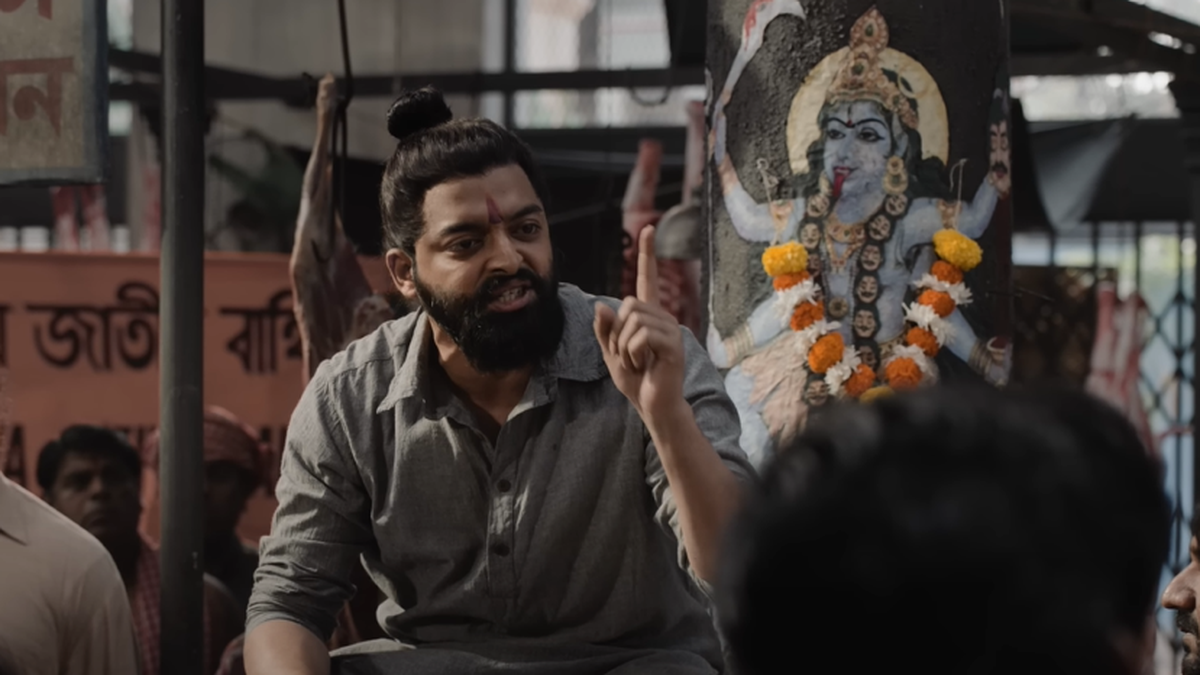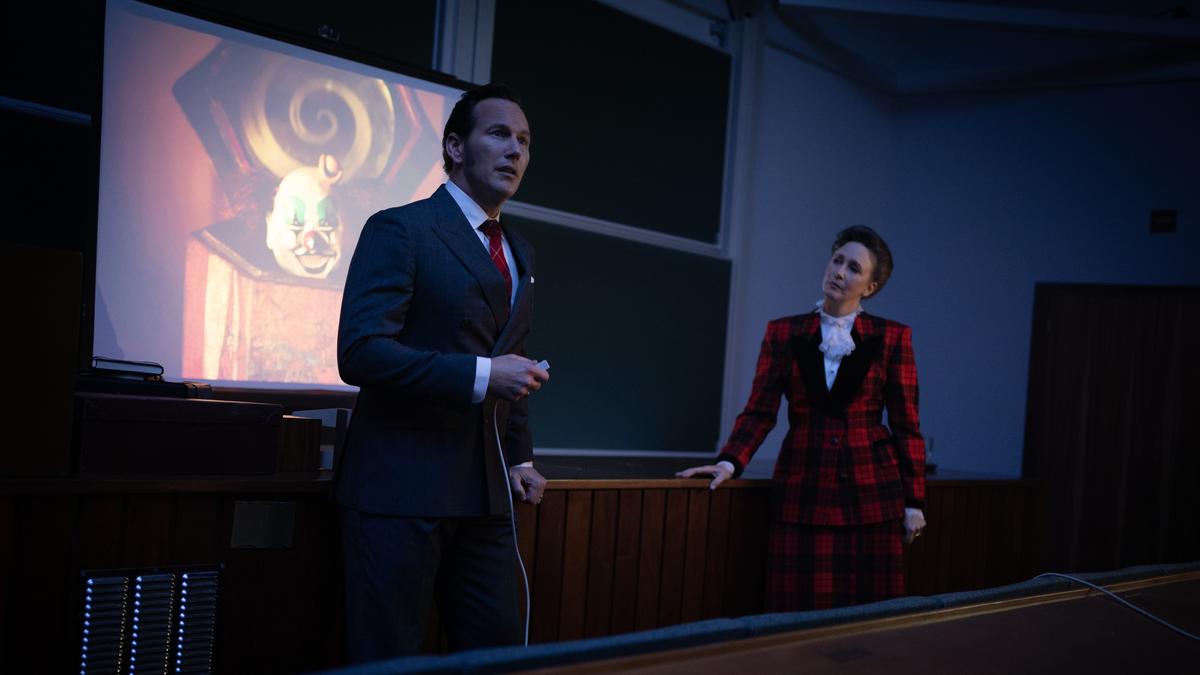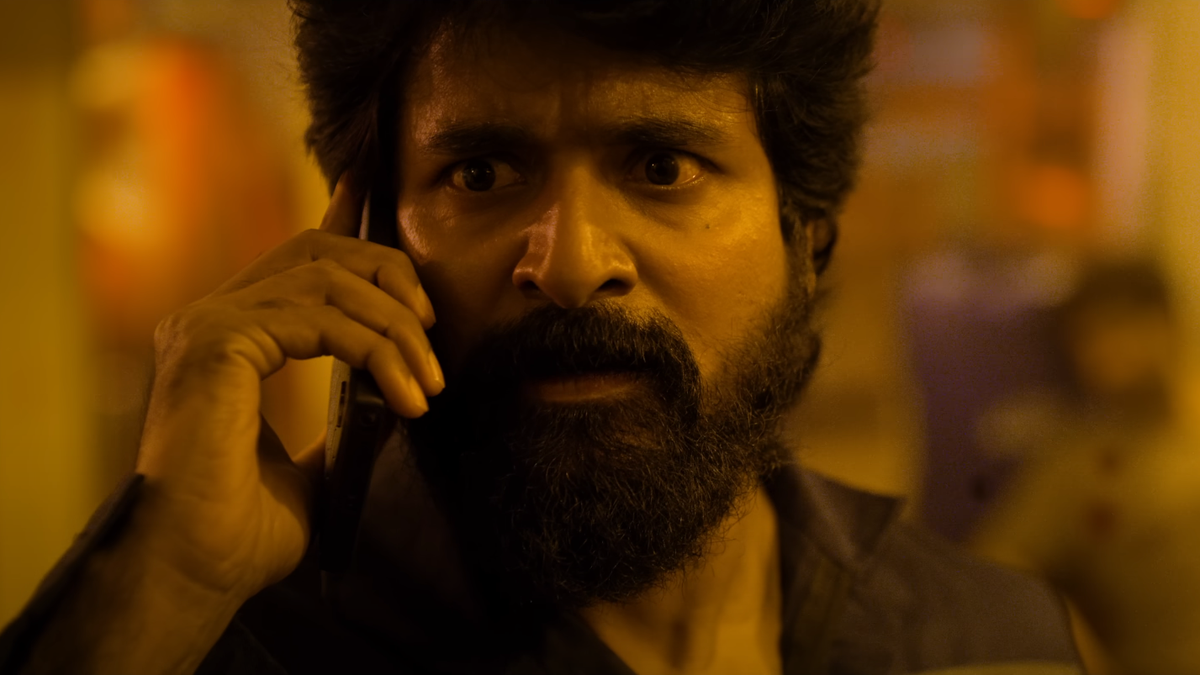Whether you’re an old hand at arthouse or just dipping a toe into the rising otaku subculture of anime aficionados around the world, this column lists curated titles that challenge, comfort, and occasionally combust your expectations.
This week, two works separated by continents and centuries have conspired into something like an accidental trilogy, that even extends into the corridors of a galaxy far, far away. Orb: On the Movements of the Earth (currently streaming on Netflix) and Mussolini: Son of the Century (playing on MUBI next week) are our chosen titles, but the lingering ruminations of the third member of this constellation,loom still. Taken together, they all stage the same essential struggles of truth against suppression, dissent against spectacle, and rebellion against the machinery of power.

From the drawing board
Studio Madhouse’s adaptation of Uoto’s manga, Orb: On the Movements of the Earth, unfolds as a centuries-long chain of inheritances. In 15th-century Europe, the forbidden idea that the earth moves around the sun passes from a child prodigy condemned to the stake, through wandering heretics, duellists, priests, even a Romani rebel, until the idea survives only as fragments before it finally reaches a printing press. Far from celebrating scientific progress as inevitable, Orb insists that the fragility of knowledge is always one betrayal away from annihilation. Every painstaking step towards the truth is bought in blood.

A still from ‘Orb: On the Movements of the Earth’ | Photo Credit: Netflix

Yet the brilliance of this anime lies in exploring why institutions fear knowledge for its ability to disrupt control. Inquisitors burn books (and heretics) to protect the Church’s monopoly over the masses, and the anime reframes knowledge itself as a sacriligeous act of rebellion, with each generation shouldering the burden anew, risking fire and rope to pass it forward. It’s impossible not to hear echoes of Tony Gilroy’s Andor, where one spark of defiance spreads like a contagion among the condemned. If the grim tenacity of Attack on Titan or the cloistered conspiracies from The Name of the Rose spoke to you, Orb will feel like their deeper, more philosophical cousin.
Foreign affairs
If Orb mourns the cost of knowledge, Joe Wright’s Italian political drama, Mussolini: Son of the Century, maps the seductions that make people surrender it. Adapted from Antonio Scurati’s novel and led by Luca Marinelli’s grotesquely magnetic Duce, the Sky series stages fascism as performance. Set to a throbbing techno score from The Chemical Brothers’ Tom Rowlands, the rhythms of Wright’s Brechtian ruptures feel disturbingly timeless.

The series chronicles Mussolini’s rise to power and the birth of Italian fascism, as we watch in abject terror, a crowd’s desire for order being weaponised into obedience and subjugation. It’s impossible not to think of Andor again here, with the pervasive fascist machinery functioning as stages designed to naturalise control.
What distinguishes Mussolini is its refusal to flatter its audiences with hindsight. Marinelli’s Mussolini is repellant, but also persuasive in the way populists so often are when the ground has already softened. It forces us to confront the ease with which democracy corrodes, and how fascism relies on unfiltered manipulation that’s repeated until it feels like common sense. And if the grotesque charisma of The Great Dictator or the acid political playfulness of The Death of Stalin caught your attention, Mussolini will strike you as a darker echo.

A still from ‘Mussolini: Son of the Century’ | Photo Credit: MUBI
Together, these works form a continuum. Orb shows how truth survives persecution, Mussolini warns how oppressive bluster corrodes democracy, and Andor insists that rebellion requires organisation and sacrifice. None of them offer easy victories, but all three make a case for persistence: whether of ideas, of memory, or of action.
Call it coincidence, or call it the zeitgeist’s most discerning accidental trilogy — that these lessons arrive through a medieval anime, a European prestige drama, and a Star Wars spinoff only proves how porous cultural borders are when it comes to confronting power.
Ctrl+Alt+Cinema is a fortnightly column that brings you handpicked gems from the boundless offerings of world cinema and anime.

 8 hours ago
1
8 hours ago
1





















 English (US) ·
English (US) ·